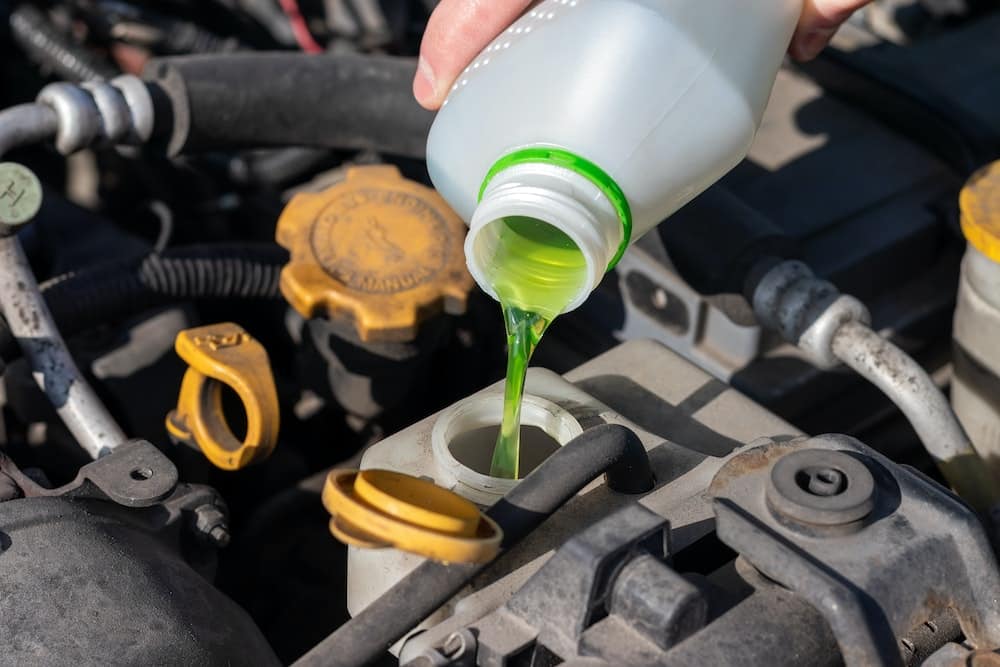How to Choose the Correct Antifreeze for Your Vehicle’s Specific Needs?

You may not realize it, but the life of your vehicle’s engine often hangs in the balance of a simple fluid. This fluid, coolant, or often referred to as antifreeze, plays a crucial role in the optimal functioning of your car. But here’s the catch, not just any antifreeze will do. Your vehicle requires a specific type of coolant to keep the engine humming along smoothly. This guide will help you navigate the types of antifreeze available, and how to choose the right one for your car.
Understanding the Role of Antifreeze in Your Car’s Engine
To appreciate the importance of choosing the right antifreeze, it’s crucial to understand what exactly this fluid does in your car’s engine. Antifreeze maintains the engine’s temperature within a safe operating range. This means it keeps your engine from overheating in the summer and prevents it from freezing in the winter.
In the same genre : Oktoberfest travel packages: tailoring your experience for maximum fun
Antifreeze achieves this by absorbing and expelling heat. When the engine is running, it generates heat, which the coolant absorbs. The fluid then travels to the radiator, where it dissipates the heat into the atmosphere. This keeps the engine from overheating and damaging the internal components.
Antifreeze also helps prevent corrosion and rust within the cooling system. It contains additives that neutralize acids and inhibit the corrosion of metal components within the engine. This ensures your engine remains in tip-top shape for years to come.
Also read : Is the roma pass worth it? benefits and limitations
Types of Antifreeze: IAT, OAT, and HOAT
There are three main types of antifreeze: Inorganic Additive Technology (IAT), Organic Acid Technology (OAT), and Hybrid Organic Acid Technology (HOAT). The type your vehicle needs will depend on the make, model, and age of your car.
IAT is the traditional type of antifreeze, used in older cars. It contains inorganic salts like phosphates or silicates, which help to inhibit corrosion. However, these salts deplete over time and thus IAT coolant needs to be replaced every two years or so.
OAT is a newer type of antifreeze, which is often found in modern cars. It uses organic acid compounds instead of inorganic salts, which last longer and provide better protection against corrosion. OAT coolant can last up to five years before needing to be replaced.
HOAT is a hybrid of the two and is used in a wide variety of cars. It uses both inorganic salts and organic acids, providing the benefits of both types. HOAT coolant typically needs to be replaced every five years or so.
Finding the Right Coolant for Your Vehicle
To find the right coolant for your vehicle, you need to consider both the car’s requirements and the benefits of different coolant types. For example, if you drive an older car, IAT might be the best choice. However, even if your car can run on IAT, you might switch to HOAT for its longer lifespan and better anti-corrosion properties.
Consider your car’s manufacturer guidelines. Most manufacturers will specify the type of coolant to use in the vehicle’s owner manual. Stick to this recommendation if you’re unsure. Mixing different types of coolants can lead to issues such as sludge formation or decreased corrosion protection.
Trusting the "Universal" or "Global" Antifreeze
Amidst the maze of coolant types, you may find products marketed as "universal" or "global" antifreeze. These coolants claim to be compatible with all types of cars and antifreeze. They contain a base of ethylene glycol or propylene glycol and various corrosion inhibitors.
While the idea of a one-size-fits-all solution is appealing, it’s crucial to approach these universal coolants with caution. They may not offer the same level of protection as the specific antifreeze recommended by your car’s manufacturer.
The Importance of Regularly Checking and Changing Your Antifreeze
Regularly checking and changing your antifreeze is as vital as choosing the correct type of coolant. Over time, the antifreeze will degrade, and its anti-corrosion and heat transfer properties will diminish. This could lead to overheating or freezing of the engine, or even corrosion damage.
Most manufacturers recommend checking your coolant level every 12 months and changing it every 30,000 miles or so. However, this can vary depending on the type of antifreeze and the make and model of your car. Always refer to your vehicle owner’s manual for specific guidelines.
Choosing the correct antifreeze is a vital part of vehicle maintenance, and it can significantly impact your vehicle’s performance and lifespan. By understanding the role of coolant in your car’s engine, the different types available, and the importance of regular checks and changes, you can ensure your vehicle stays in optimal condition for many years to come.
Antifreeze and Your Vehicle’s Performance
Now that we’ve established the three main types of antifreeze and their key benefits, let’s delve into how the right coolant can influence your vehicle’s performance. The engine of your car is its heart. It’s responsible for converting fuel into mechanical energy, which in turn powers your vehicle. The right antifreeze can optimize this process and ensure that your vehicle runs smoothly and efficiently.
Engine coolant, as we’ve discussed, absorbs heat from the engine and expels it into the atmosphere, thereby preventing the engine from overheating. An overheated engine can lead to a myriad of issues, from reduced performance and efficiency to complete engine failure. By choosing the right type of antifreeze, you can ensure that your car’s cooling system is working optimally, thereby maintaining the integrity of your engine.
Furthermore, the anti-corrosion properties of antifreeze help to protect the inner workings of your engine. Rust and corrosion can seriously compromise the performance of your engine, leading to expensive repairs or even a total engine replacement. By using the correct type of coolant, you’re effectively safeguarding your engine and prolonging its lifespan.
So whether it’s IAT coolant for an older car, OAT coolant for a modern vehicle, or HOAT coolant for an all-round protective option, the right antifreeze can make a significant difference to your vehicle’s performance.
Concluding Thoughts on Antifreeze
In conclusion, your coolant plays an essential role in your vehicle’s performance and lifespan. It not only regulates the temperature of your engine but also helps to prevent rust and corrosion within the cooling system. However, not every engine coolant is right for every car. It’s important to choose the type of coolant antifreeze that fits your vehicle’s specific needs.
Using the manufacturer’s guidelines outlined in the owner manual can help you choose the appropriate coolant for your vehicle. But remember, even the best antifreeze will degrade over time. Make sure to regularly check the level and condition of your coolant and replace it as recommended.
While you may feel tempted by universal or global coolants, remember that they may not offer the same protection as the specific antifreeze recommended by your vehicle’s manufacturer. Ultimately, investing time and effort to select the right antifreeze for your car will pay off in the long run, helping you to keep your engine running smoothly and prolonging the life of your vehicle.
Choosing the right antifreeze is just one aspect of vehicle maintenance, but it’s a vital one. We hope this guide has given you a deeper understanding of the importance of antifreeze and how to choose the correct one for your specific vehicle needs. This knowledge will empower you to make informed decisions about your vehicle’s care and maintenance, ensuring that it serves you well for many years to come.
